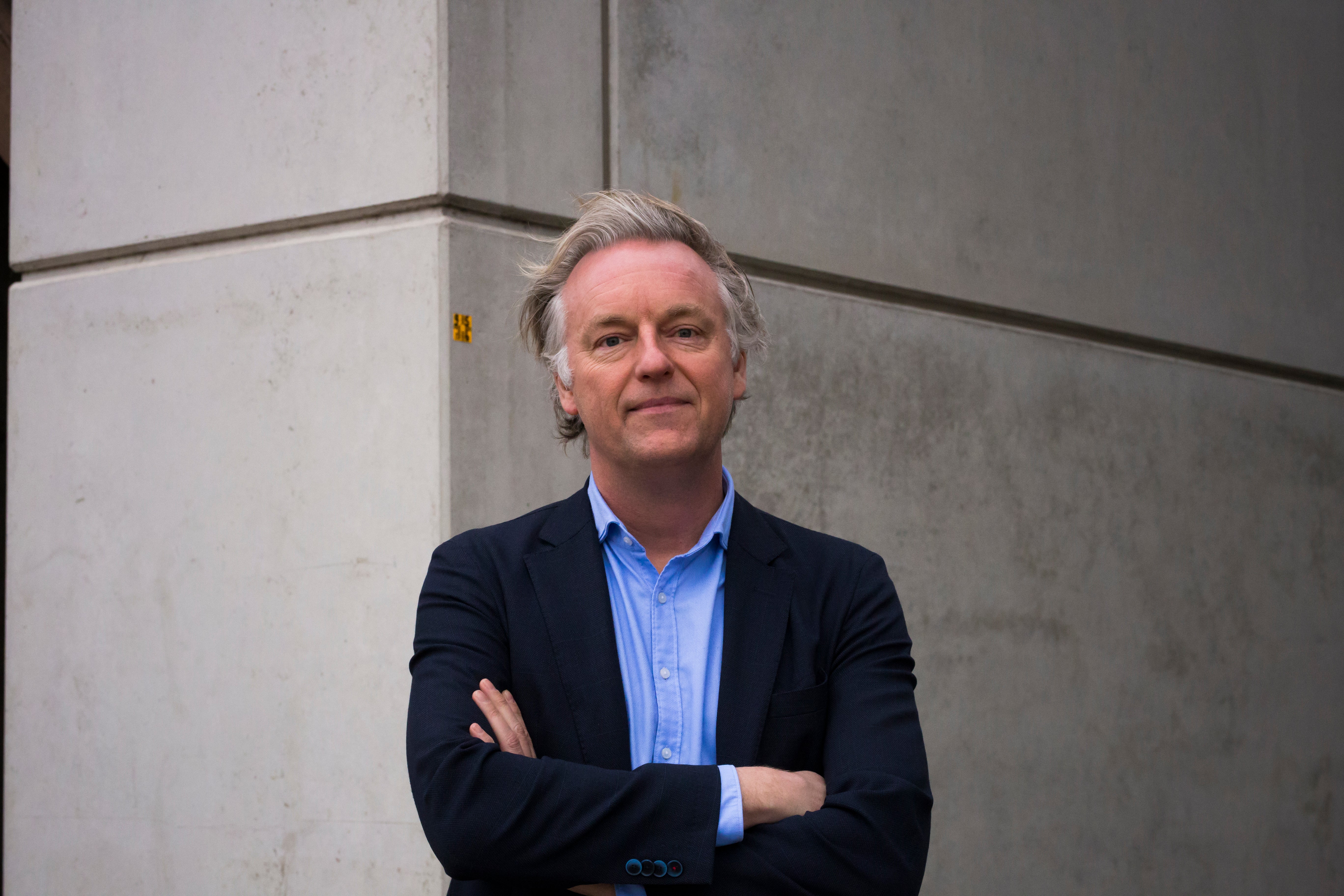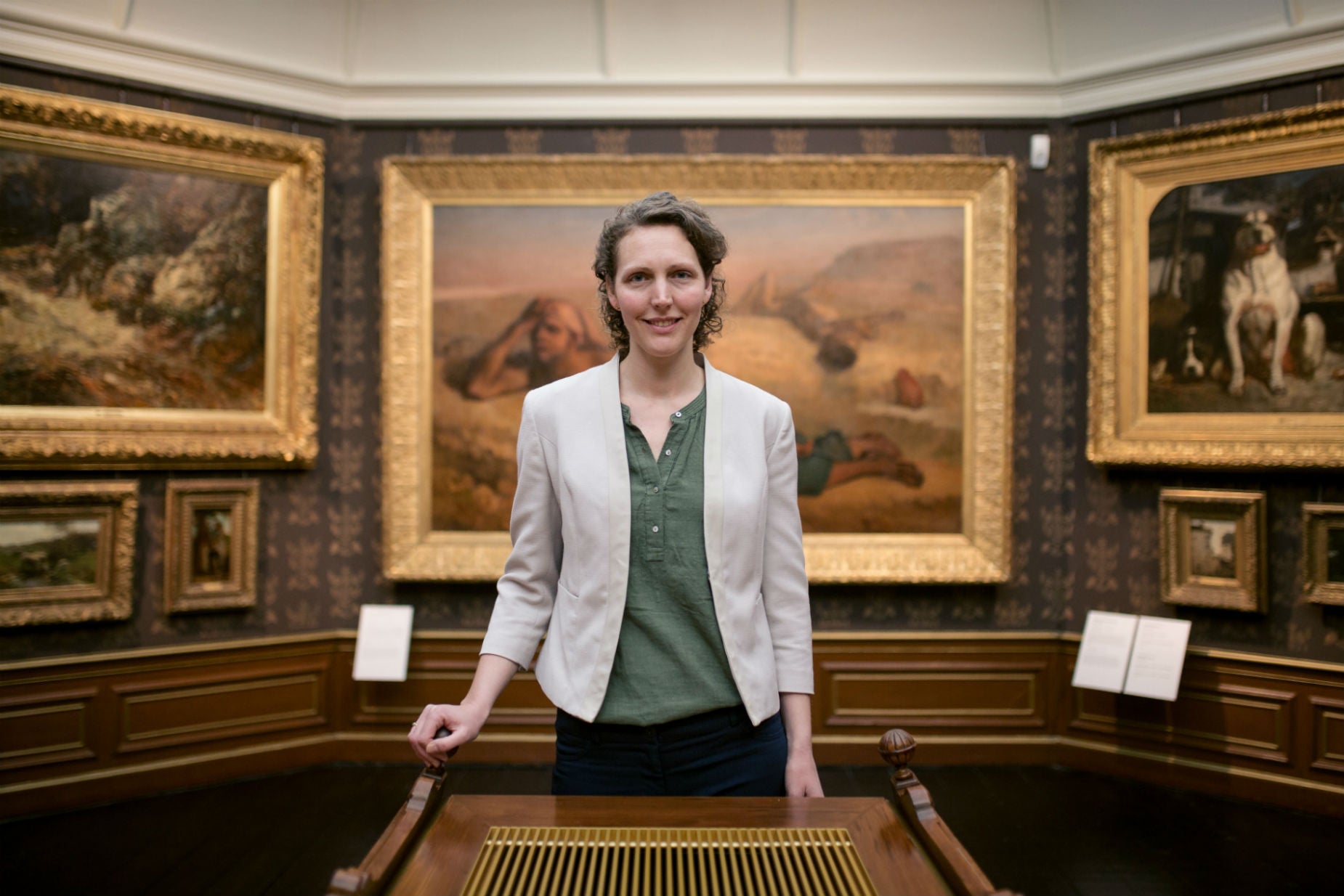In the beautiful Mediahaven Building in Amsterdam’s houthaven area, we met with Taco Zimmerman (49), director of Tuvalu Media. He is all but nervous about the future of television. “There’s a greater need for content than ever before.”
Back in the day, you decided to study Political Science, why? “To be very honest: Political Science was never meant to be more than a stopgap. I wanted to be a doctor, but I missed out on the lottery twice. In retrospect, it’s probably best that that happened, because I don’t think I’m the right person to be a doctor. Although Medicine is a truly wonderful field, it’s a path that you choose for the rest of your life. I’m more of a creative entrepreneur who enjoys colouring outside the lines every now and again. That’s not what you’re looking for in a doctor. As it happened, Political Science was a great fit. Back then, we had our classes in the gorgeous old buildings in the Koningslaan and the Van Eeghenstraat. I have to admit, though, that I wasn’t there too often, because I also spent a lot of time at the Lanx student society, with my chapter, Forvm.”
What did you like about the programme? “It’s a degree programme that covers lots of aspects of society, from constitutional law to the police and diplomacy. It was profoundly interesting to me. What it boils down to is the organisation of society: How can you make sure that everyone can live side by side with a number of fixed agreements? It’s an incredibly interesting question and it may just be more relevant than ever before.
I liked my faculty as well, because it was small and the professors were kind. My professor for Constitutional law was Erik Jurgens, for instance, who taught us from home. He was in the Dutch Senate at the time, and I’d go to his study at home in Amsterdam Zuid for oral exams. It took me a while to realise how special that was, but back then, I was so preoccupied with other things that my degree usually came in third or fourth place.”
"As a child, I used to ask all my neighbours whether I could mow their gardens for two guilders and fifty cents."
Do you today still apply what you learned in your studies? “That’s a difficult question. I ended up going in a direction that I could have gone regardless of what I studied, so I’m not sure. You learn academic skills, of course, and as I graduated on International Relations, I also learned how to create something with a group. Ultimately, that’s also what you do when you’re making TV. I link and connect people and companies to each other, such as directors and broadcasters, and make sure that there’s a budget, so, as the producer, I’m like a spider in a web. My job also requires quite some diplomacy, so I also use my background in Political Science in that respect. My mother, by the way, would have preferred it if I’d become a diplomat, haha.”

Were you just as enterprising when you were a student? “I’ve always been an entrepreneur. As a child, I used to ask all my neighbours whether I could mow their gardens for two guilders and fifty cents. In high school, I became a member of Veronica’s youth club, which is where I learned the basic principles of working in television. In my student days, I set up a company that made commissioned films and commercials with some of my fellow students. Thanks to the VU, I was given the chance to shoot a film for the European Union. That company later grew into Palazzina Productions, which mainly made popular science, nature and travel programmes for Discovery Channel and National Geographic. In 2006, we created Tuvalu Media, which experienced significant growth from the very first day, producing well-known programmes such as Maestro, DNA Onbekend, Brugklas, Ali B op volle toeren and Rot op naar je eigen land.”
"At 8 am, my wife will know whether I’ll be happy or grumpy for the rest of the morning."
What sets Tuvalu apart from its competitors? “I always say that we manage to make boring subjects appealing and difficult subjects accessible, and work with the conviction that something can be amusing and informative at the same time. We try to be relevant and meaningful. Maestro, for instance, which gets 2.5 million people watching classical music, makes me very happy. I also think that Ali B Op Volle Toeren (Ali B in Full Swing, with famous Dutch rap artist Ali B) has done more for multicultural society and bridging the generational gap than 50 NTR documentaries ever could. Rot op naar je eigen land (Bugger off to where you came from), for instance, takes a completely different approach to the refugee problem than Nieuwsuur or the news.”
How do disappointing ratings affect you? “I’m still very bad at dealing with them. At 8 am, my wife will know whether I’ll be happy or grumpy for the rest of the morning, because that’s when they publish last night’s ratings. Our programmes are always quite dear to me, so I can get very upset when they fail to get good ratings.”
"I am my own best customer."
Are you nervous about the future of television? “Traditional channels should be worried, because linear viewing is definitely experiencing a sharp fall. More generally, however, television will always continue to exist, though in a different shape or form. People have started watching TV whenever it suits them best, using Netflix or Videoland, for instance, or the online services that let you catch up with TV programmes. This trend is only set to increase. It’s a great time for us, content creators, though, because there’s a greater demand for content than ever before. We don’t just produce content for television channels, but for companies and governments too. Video has become an indispensable part of communications.”
How often do you watch TV? "Almost every day. I’m a football fan, so I enjoy watching football matches. I also watch a lot of current affairs programmes and drama series. I loved watching TV when I was a little boy, and I don’t think it will ever change. I am my own best customer."








